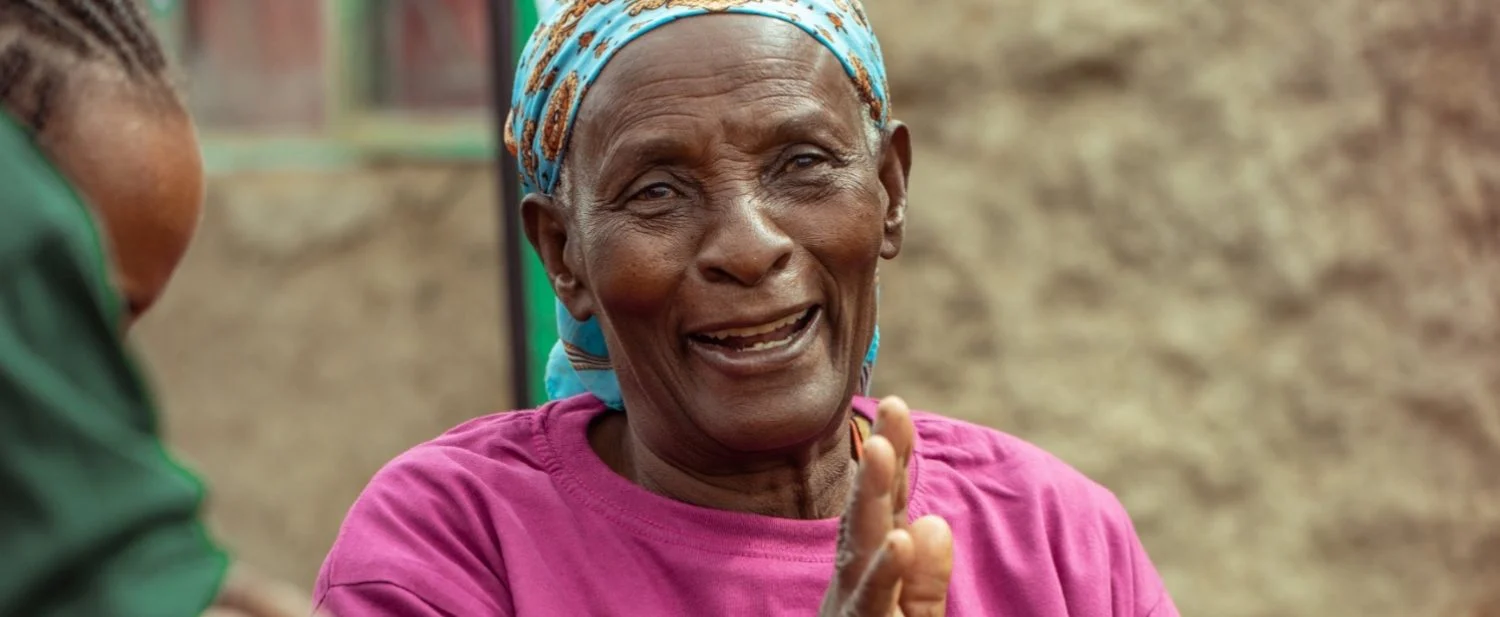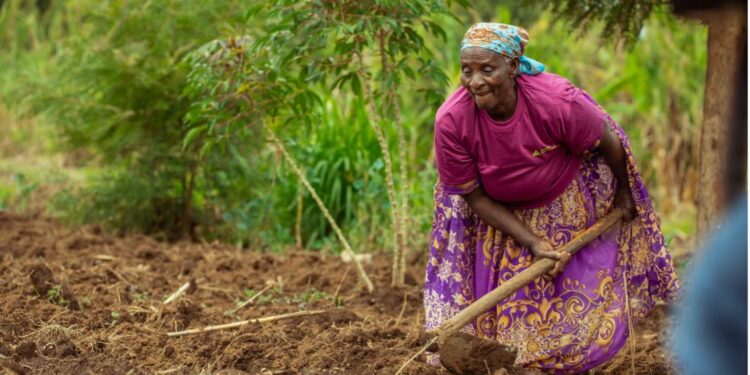Mama Naumi Kamau’s smile is no ordinary expression of joy. It is the kind of smile that emerges when uncertainty gives way to a new phase of growth. She walked through her plot in Kabatini, Nakuru, under the November sun, surrounded by tall, healthy maize with plump white kernels — the tangible result of a commitment that transformed how she cultivates, produces, and creates value.
For years, her three-quarter-hectare land barely yielded enough to feed her family. Sparse harvests, traditional farming practices, and lack of access to adequate inputs kept her operation on the brink of subsistence. As head of the household with no other source of income besides her own effort, every season was a survival mission with razor-thin margins.
Project 19: Dreams Hub officially launches the initiative supported by the OIF in Equatorial Guinea
Everything changed when she met Zacharia “Zack” Rukwaro, a representative of Apollo Agriculture. He didn’t bring empty promises, but a concrete proposal: a comprehensive agricultural package designed to scale the productivity of smallholder farmers by integrating technology, financing, and technical support.

Apollo Agriculture’s model includes high-yield hybrid seeds, certified fertilizers, and a flexible payment system called Lipa Pole Pole that allows farmers to acquire inputs through affordable installment plans. But what truly made the difference was the monthly technical follow-up Zack provided to Mama Kamau — hands-on mentoring in the field to optimize every stage of the crop cycle.
Thanks to this partnership, Mama Kamau adopted a far more strategic approach to her farming operation. She implemented good agronomic practices, adjusted planting density, applied fertilizers at key growth stages, and strengthened her risk management. When heavy rains and winds threatened to destroy her crop in September, she was able to activate the crop insurance included in Apollo’s package, harvesting on time and securing her return on investment.
The results were decisive: 11 bags of maize weighing 90 kg each — more than five times her usual yield. For the first time, she not only met her household’s food needs but generated marketable surplus and began building a small capital reserve for her grandchildren’s education. She had moved beyond mere survival into the realm of rural entrepreneurship.
Mama Kamau’s experience is not an isolated case but part of a systemic transformation. Through its partnership with the African Development Bank and the African Fertilizer Financing Mechanism (AFFM), Apollo Agriculture has developed a scalable model that now benefits more than 36,000 farmers in Kenya. The $2 million commercial credit guarantee fund provided by AFFM enables the extension of quality inputs to producers traditionally excluded from formal credit, removing structural barriers and accelerating the adoption of efficient agricultural technologies.

Previously, Mama Kamau could only access small loans tied to the pension of her late husband. Today, she is part of a network of producers leveraging innovative resources, smart financing, and technical support — key elements that position her work as a true rural enterprise.
This kind of model changes the game: it transforms vulnerable producers into economic agents with the capacity to make decisions, plan, and grow. Instead of relying on the luck of a single harvest, Mama Kamau now depends on a system that enables her to manage production predictably, respond to crises, and generate market-value surpluses.
In every bag of maize she packed that morning, there was more than food — there was a new narrative: that of a woman who bet on an innovative solution, learned to maximize her resources, and carved out her place in a value chain that recognizes her as a producer, investor, and entrepreneur. Mama Kamau smiles because she knows this harvest will not be her last. And because now, more than ever, her farm is truly her business.









